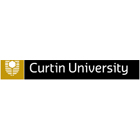Master of Science (Minerals and Energy Economics)
Master of Science (Minerals and Energy Economics)
Appreciating the business and economic framework in which the resources sector operates requires knowledge of economic, financial, managerial, legal, regulatory, political and social environments. Our teaching programs are offered in a flexible way to cater for fly-in-fly-out workers and busy mid-career resource sector professionals wanting to balance work and study….
Categories
COURSE DESCRIPTION
Appreciating the business and economic framework in which the resources sector operates requires knowledge of economic, financial, managerial, legal, regulatory, political and social environments.
Our teaching programs are offered in a flexible way to cater for fly-in-fly-out workers and busy mid-career resource sector professionals wanting to balance work and study. They are designed to help these professionals move into senior management or decision-making roles.
Business-oriented students are immersed in the workings of the energy and mining sectors, while those with a technical background learn business tactics and terminology. Both groups graduate with a deeper understanding of the sector, and the tools to put new knowledge into action.
This course will provide you with a thorough foundation in resource sector management and general business theories. You will complete coursework units on economic, financial and management issues.
What you’ll learn
Examine and evaluate economic and financial models and trends that affect the minerals and energy sector
Analyse problems and issues that pertain to the mineral and energy sector and incorporate evidenced based solutions
Access appropriate database sources and evaluate and synthesise information from these and other sources to make valid and supported judgments about issues
Develop skills in communication to allow decision making in a business setting; recognise the different approaches needed to communicate with different audiences
Select and use appropriate software packages to manipulate , transfer, access and manage data
Develop skills in gathering and organising information from several sources and recognise and rectify known gaps in knowledge
Analyse the issues and impacts made by minerals and energy regulators and other stakeholders on international, regional, local and cross-jurisdictional policies, procedures and industry outcomes
Explore and analyse how minerals and energy developments impact local and regional communities and other stakeholders, including Indigenous Australian communities, highlighting the relationship between these natural resources and the land and their inhabitants
Recognise and respond appropriately to the needs of different groups in terms of professional behaviour; work successfully in collaborative teams to achieve stated outcomes
REQUIREMENTS
Specifically, applicants for this course require a bachelor degree from a recognised tertiary institution and at least three years subsequent, relevant work experience. Graduates from the Curtin Graduate Certificate in Minerals and Energy Economics will be considered qualified for entry.
Certificate in Advanced English (CAE): Grade C; and Pearson Test of English Academic: 60. IELTS (International English Language Testing System) – Listening, Reading, Writing, and Speaking – 6.0; Overall band score 6.5; TOEFL (Test of English as a Foreign Language) 79 (overall) Reading 13 Listening 13 Speaking 18 Writing 21.
EDUCATIONAL INSTITUTION
Curtin University is Western Australia’s largest and most culturally diverse university with Australia’s third largest international student population. Around 60,000 students from more than 130 countries study a Curtin degree, at locations including Perth, Margaret River, Kalgoorlie, Sydney, Malaysia and Singapore. Our cultural diversity adds a rich and valuable dimension to the campus atmosphere, preparing all graduates to live and work effectively in an increasingly global environment. We offer a range of industry-aligned undergraduate and postgraduate courses in business, humanities, health, engineering and related sciences. We also have a long-standing focus on Aboriginal and Torres Strait Islander education and culture, supported by our Centre for Aboriginal Studies.Curtin is widely recognised for its practical research that is focused on solving timely, real-world problems. In recent years our research activity has grown significantly, driving our rapid rise up the international university rankings.As a university that never settles, we will continue to develop existing partnerships and establish new ones in areas relevant to our research and teaching.

